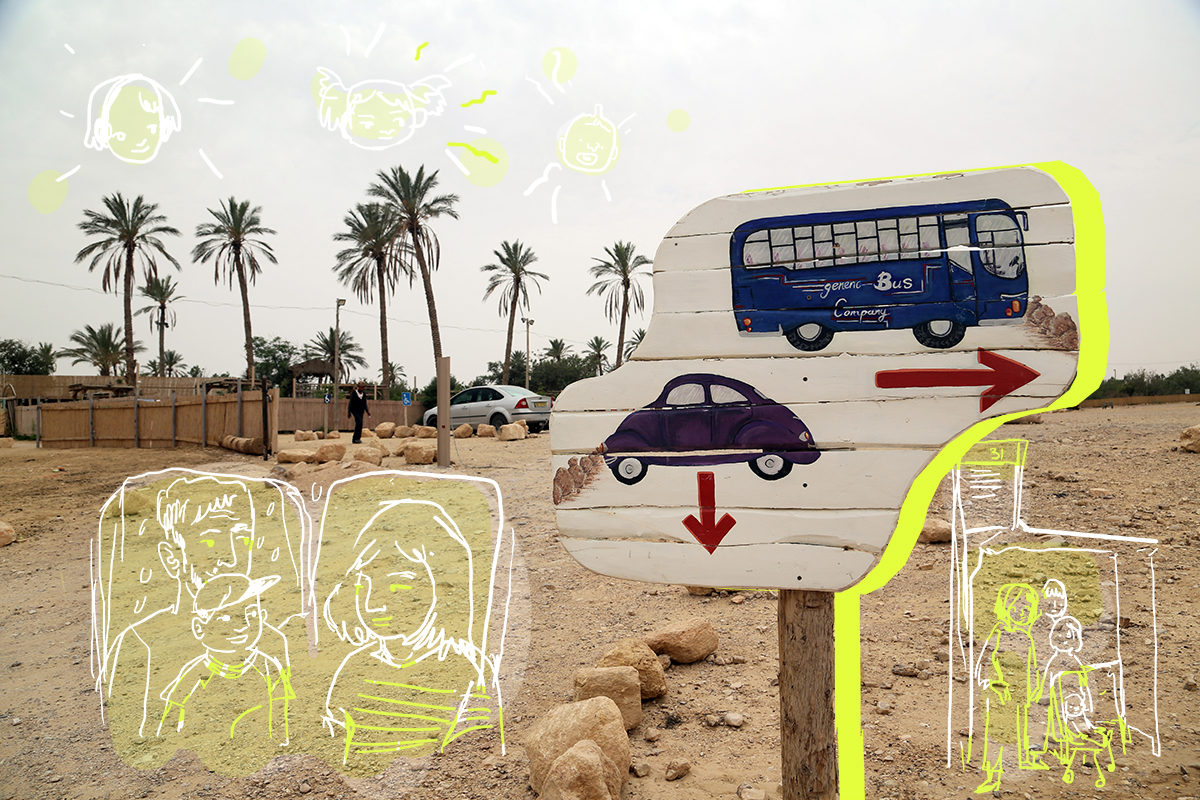Good news! It’s possible to rely on public transportation in Israel with kids. Here’s what you need to know:
Buses
Taking a bus is the best way to travel inside cities, but it’s also possible to take a bus from city to city.
There are a few different bus companies in Israel, though Egged and Dan (which is mostly active in the Tel Aviv area) are the main ones. You will need a Rav-Kav card in order to board the buses. You can buy a Rav-Kav at these locations, including Ben Gurion Airport. A Rav-Kav cost 5 NIS, and you will need a passport to get a monthly Rav-Kav. You can charge your card with cash through a bus driver or with cash or card at Rav-Kav locations.
Keep in mind that buses do not operate in Israel on Shabbat.
So, how do I figure out how to get around?
You can find your best bus route on the Egged and Dan websites. You can also use the Moovit app, which gives you realtime locations of local buses and best routes.
What you need to know about taking a bus with kids in Israel
Strollers are allowed on buses, and kids in strollers don’t have to pay for a ticket.
Kids under the age of 5 can take the bus for free — one kid per parent. Kids between the age of 5 and 18 get 50% off their ticket on Rav-Kav.
Trains
Taking the train is the best way to travel between cities, as well as between very central locations inside big cities. You can use the Israeli railway website or app to plan your journey. You can pay for your journey through the website or buy a ticket at the station.
Like buses, trains in Israel do not run on Shabbat.
What you need to know about taking a train with kids in Israel
Just like on a bus, children under the age of 5 can travel for free, and kids between the age of 5 and 18 get a 50% discount.
Service cabs/Sherut
Service cabs, or moniyot sherut — also known simply as sherut to tourists — are big vans that serve as a sort of hybrid bus/taxi. The sherut travels on a set route, and you can hail them at any point on the route, or in bus stations. They are relatively cheap, costing around as much bus ticket, although you must pay with cash when you board. Tell the driver where you want to be dropped off along the route (or use a friendly Israeli fellow rider to tell them.) You can take the sherut between cities, like between Tel Aviv and Jerusalem, or within cities. Bonus: Unlike buses and trains, sherut operate on Shabbat.
Cabs
Depending on where you are, you can hail or call a cab service, though you may not always end up with someone who speaks English. You might be better off using a cab-hailing apps, Gett or Yango. Uber and Lyft and other private car-sharing apps are currently banned in Israel. As with sherut, traveling by taxi is a good way to get around on Shabbat.








